The Dealmaker: Alumnus and Investment Banker Michael Kramer Shares His Journey
When Southern California native Mike Kramer ’90 (Finance) first set foot on Wall Street in 1994, he was shocked to see that it was nothing like the soaring, imposing skyscraper temple he’d seen in movies and TV. The fabled street in the oldest settled section of Manhattan is a narrow, dark alley.
In 1993 Kramer, while at LA-based investment bank Houlihan Lokey jumped at the chance to take a temporary assignment in the firm’s New York office — which turned out to be in Midtown Manhattan, like most massive “Wall Street” banks and financial firms. The incessant pace of the city, being away from home, the subways, the winter weather — they were all daunting to the San Fernando Valley native, who’d never really traveled outside his sunny home state. But Kramer went all in, pouring his trademark work ethic — 80- to 100-hour weeks, a never-say-die attitude toward closing deals — into his work in Houlihan’s restructuring practice. He was in New York to stay.
Kramer, a multigenerational Matador and proud graduate of California State University, Northridge, has made an impact on Wall Street that few other men and women can claim: A lifelong leader in “boutique” investment banking firms and now founding partner and CEO of Ducera Partners, Kramer has helped forge some of the largest deals in modern financial history, including 2018’s $70-billion sale of agricultural giant Monsanto to Bayer A.G..
He represented the federal government, through the FDIC, in helping shore up the U.S. financial system during the 2007-08 crisis (which launched the Great Recession). More recently, he is involved in the restructuring of Puerto Rico’s financial system. In a much lighter arena, he’s a sports nut who has been the architect of sales of franchises including the Texas Rangers, the New Jersey Devils and the Dallas Stars.
Both of his parents, his aunt and his niece are also CSUN alumni, and he visits family regularly in the Valley. But it was a deal, of course — the bankruptcy and restructuring of utility behemoth Pacific Gas & Electric (PG&E) — that brought Kramer back to California on March 6, when he took the opportunity to visit his alma mater and meet current students in the David Nazarian College of Business and Economics.
Kramer, 50, who now lives in Connecticut, visited campus as the spring semester’s first guest in the Nazarian College Distinguished Speaker Series, a semi-annual series that has brought his fellow alumni and other leaders of Fortune 500 companies including Jane Wurwand, founder of Dermalogica, the largest professional skincare brand in the world; Steve Rabuchin ’85 (Organizational Systems Management), vice president for Amazon Alexa Voice Services and Alexa Skills; and award-winning film producer Michael Grillo ’71 (Business Administration).
Kramer addressed a crowd of about 200 students in the University Student Union Grand Salon, as well as faculty, alumni and even a few of his aunts and uncles, who surprised and delighted the CEO when they arrived and sat down in the front row.
He sat on stage with moderator and finance professor Mike Phillips, a mentor and friend to Kramer since his university days, when the business student took five classes from Phillips. Earlier in the day, Kramer also gave a guest lecture and took questions from Phillips’ investing class at Bookstein Hall, where he held the students in rapt attention for about 90 minutes.
“He probably had more classes from me than any other student in the history of my career,” Phillips said, grinning. “Despite that, he’s gone on to become absolutely a rock star in the world of finance. I’m delighted to have him here with us today.”
In the evening program at the Grand Salon, the affable Kramer spoke about his time at CSUN, his career trajectory, and the current landscape of investment banking and global deals.
“I’m fortunate to have been at the forefront,” Kramer said. “I get a lot of credit for the deals people have read about, but I have seven partners at Ducera — I have a strong team that has been with me most of their careers. My success is all of ours.
“Early on, I learned that that team is really important,” he said. “You can be the best analyst or investment banker, but unless people want to work with you, it doesn’t matter.”
At the age of 26, Kramer became the youngest partner in Houlihan Lokey’s history. Following his tenure there, Kramer became a partner at Greenhill & Company and Perella Weinberg before founding Ducera Partners in 2015.
He has led restructurings or sales of iHeart Radio ($20 billion), Nieman Marcus ($5 billion) and advised clients including GE Corporation. When asked about his favorite or most memorable deal, he recounted his work with struggling Hostess Brands in 2012.
“It’s the great American icon, the Twinkie. We can’t live without our Twinkies,” Kramer said, smiling. “Seven years ago, I was called by the board of Hostess. They said, ‘We’re having a lot of financial trouble, we’re running out of money — we don’t know how we’re going to continue. Can you come in and help us think through this?
“When I, or any investment banker, gets involved in these transactions, it is usually a multi-year process. It’s not two or three weeks,” he said. “In that situation, we had to figure out how to restructure the company. They had approximately 42 different union contracts! Two of the primary unions were the International Teamsters and the Bakers (the Bakery, Confectionary, Tobacco Workers and Grain Millers International). So, I got to spend six months of my life, going three or four days a week down to D.C., to the headquarters of the Teamsters, negotiating with their most senior leaders.
“We actually cut a deal,” he said. “The Teamsters were an incredibly tough counterparty, but we cut a deal. Unfortunately we weren’t as successful with the Baker’s Union. We were forced to totally shut the company down — that was me, I’m the guy who took away Twinkies for a few months. About six months later, we sold the company for approximately $1 billion. In many ways, that’s what we deal with all the time. It was a success in the price we were able to receive for the assests, but a failure in some respects, because a lot of people lost their jobs.”
In addition to traditional investment banking activities, Ducera and Kramer focus on supporting companies and entrepreneurs, building and funding innovation, technology, growth equity and venture capital activities.
On any given day as a generalist, Kramer said, he has the opportunity to work with a utility company, an internet startup and an established commercial venture.
“I recommend focusing your career on something that you’re very interested in,” he told students. “Find something that you can get excited and passionate about. I’m absolutely fortunate in my career, and in my personal life. I’m thrilled with where I’m at today.”
Kramer’s father, Stanley ’73 (Business Administration), and mother, Paula ’86 (Criminology and Corrections) — who went back to school while Michael was growing up, to complete her degree — both earned their bachelor’s degrees at what was then San Fernando Valley State College, and then CSUN. When Michael graduated from Simi Valley High School in 1986 and prepared to go off to college, his dad said, ‘You’re going to CSUN and that’s that,’” he said. The affordability and ease of living at home made it an obvious choice, he said. (His younger sister, Michelle (Kramer) Reckleff ’92 (Health Administration), is also a Matador.)
Despite the thousands of miles between his home and his alma master, Kramer said, he was gratified to return to meet current students and reflect back.
“This is where I learned the basics of accounting and finance, but the experience of being in college is a much broader experience,” he said. “Of course the finance classes were great — I took [Phillips’ classes] five times! When you get to university, there’s a lot more freedom, there’s a lot more judgement that comes into play. You gain the ability to learn how to learn and the ability to be a little bit more bold. In high school, they told you where you were going. In college, here, you have to create your own path.”
At 50, Kramer said, he hopes that he is still mid-career. Clearly, he still has the hunger and ambition that drove him in his first career steps.
“The biggest career challenge I’ve faced is something that I face, still today — which is how to continue to build my career, build my firm and create relevancy for my firm,” he said. “I’m not sure I’ve overcome that. It continues to sit in front of me today. I joke that every morning, I get up scared out of my mind, ‘What am I going to do today? How am I going to add value?’ At the end of the day when I go home, I’m pretty upset half the time that I didn’t get enough done.
“Being the CEO of a firm, particularly a services-oriented firm, you’re responsible for a lot of people and a lot of their livelihood,” he said. “But also their career development and their futures. One of the things that’s constantly a challenge for me is, how do we build our firm, how do we create a scenario where we can look someone in the eye and say, ‘You should come work for us. This is a long-term career, and you’re going to have a great trajectory.’ People want that opportunity.”

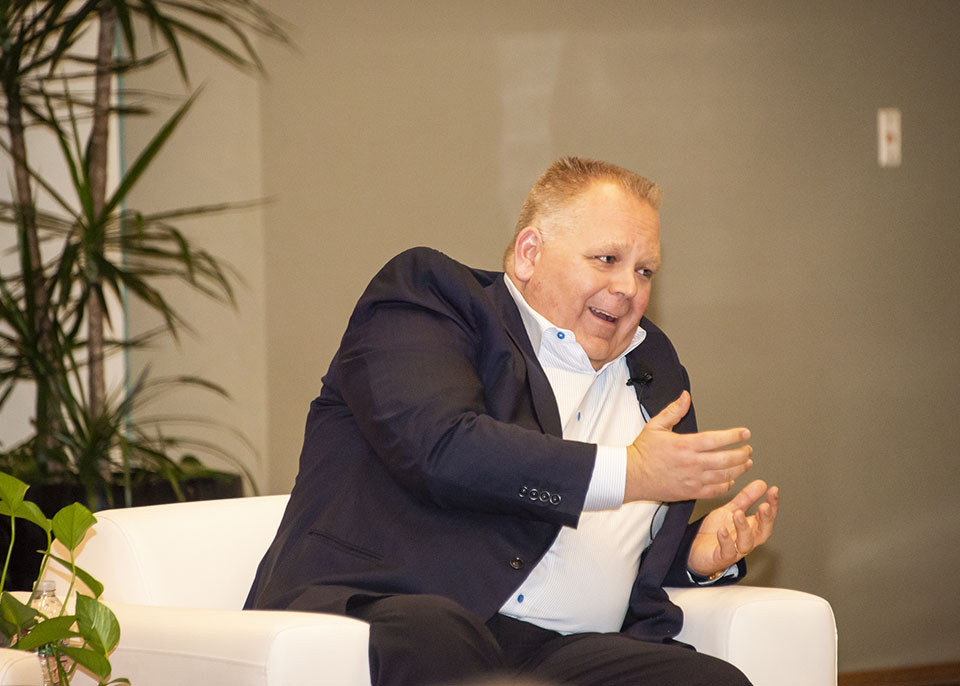
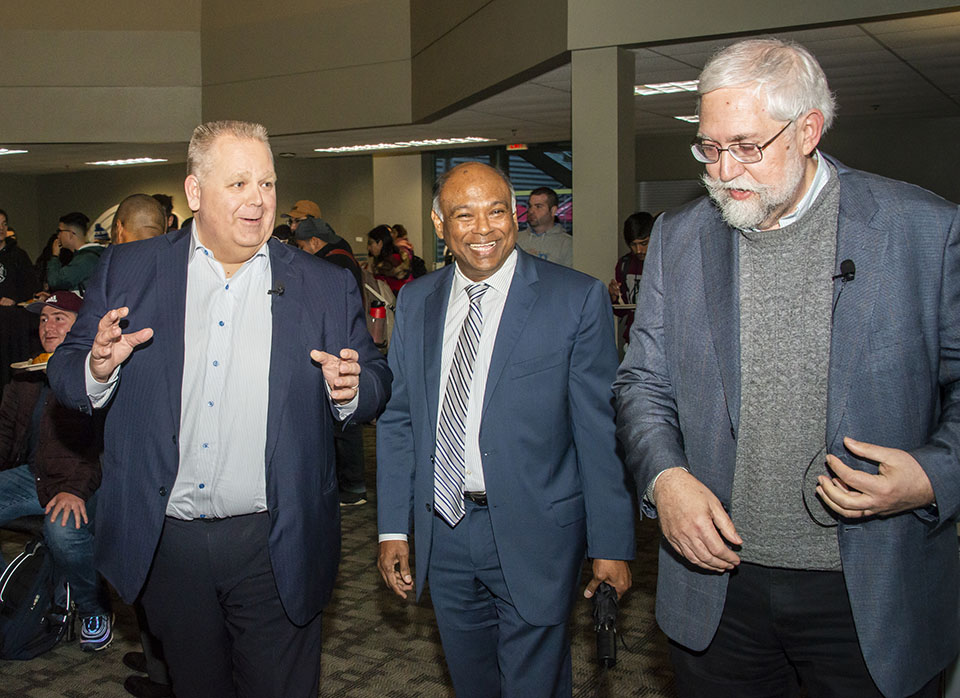
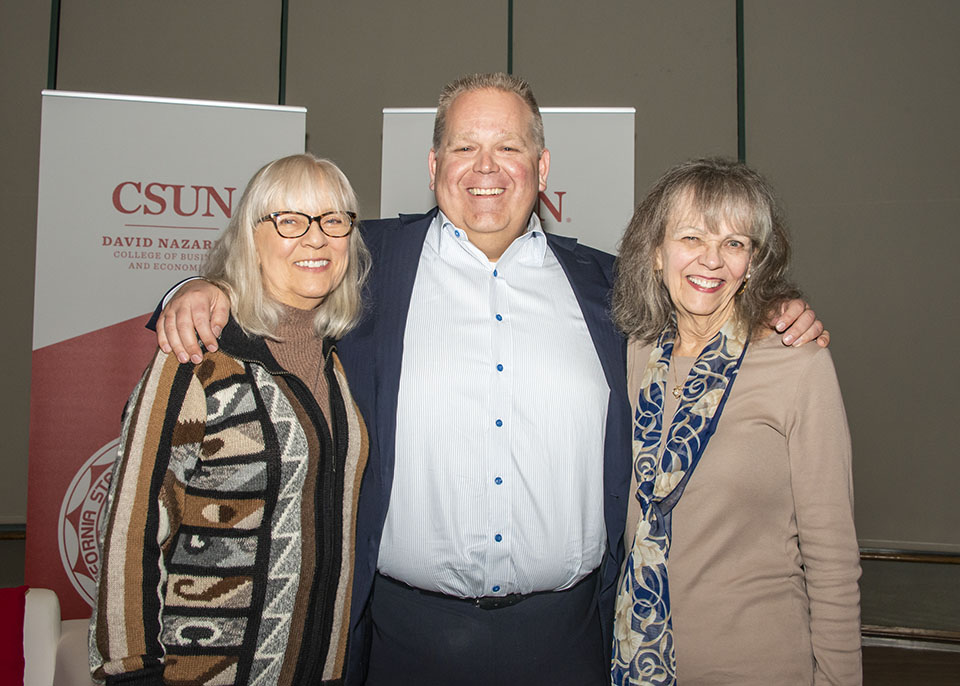
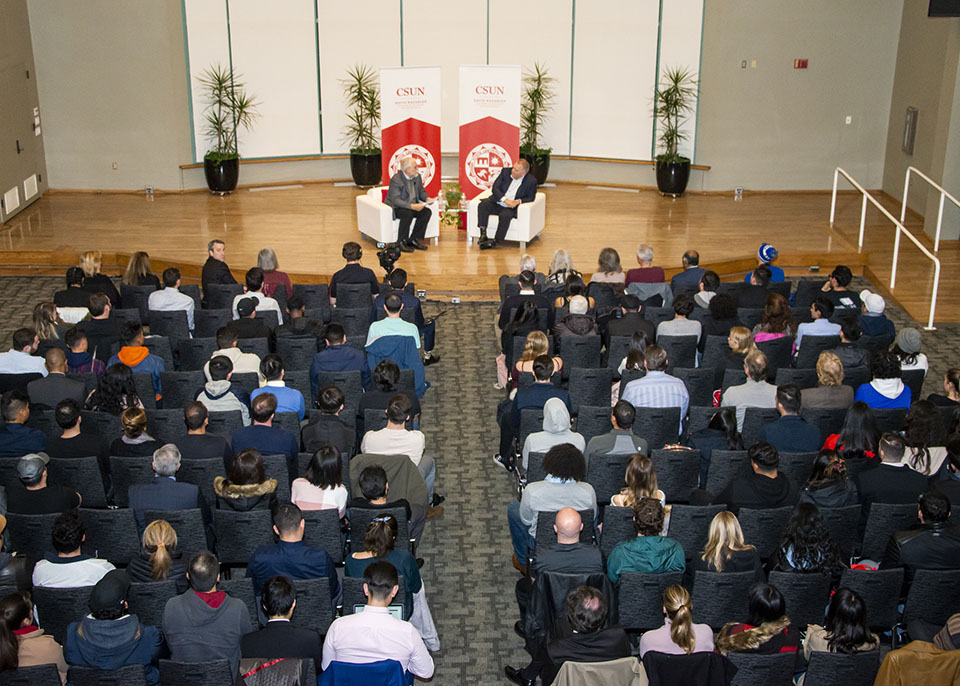
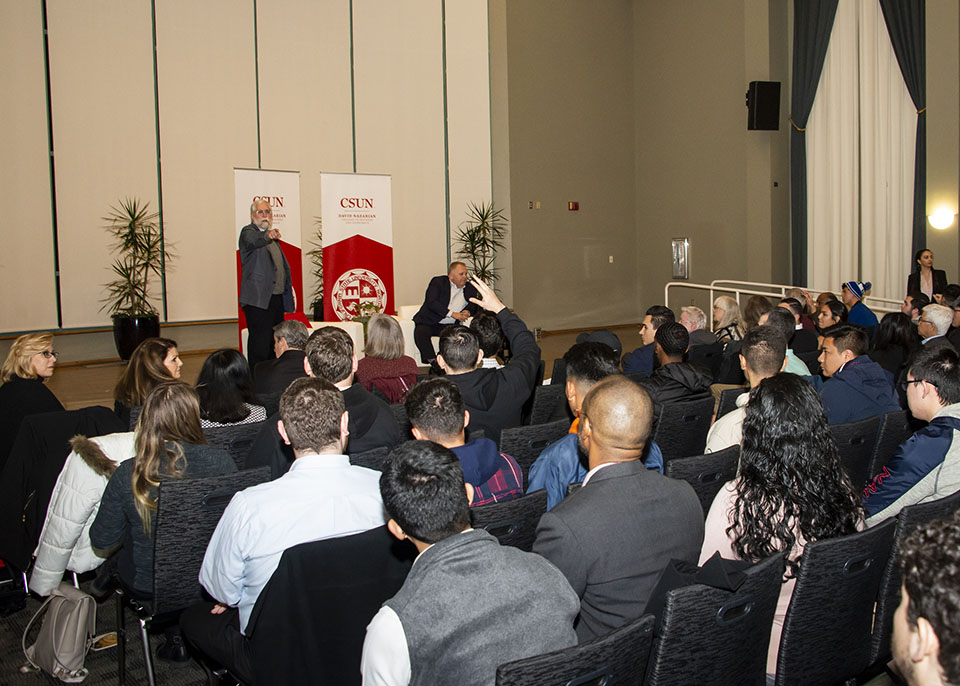
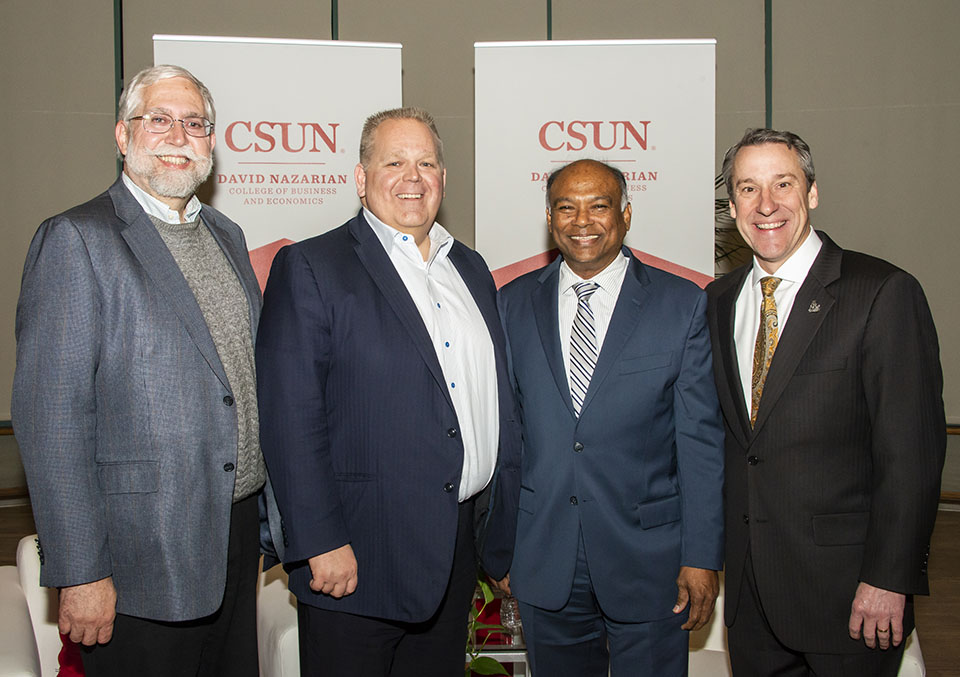
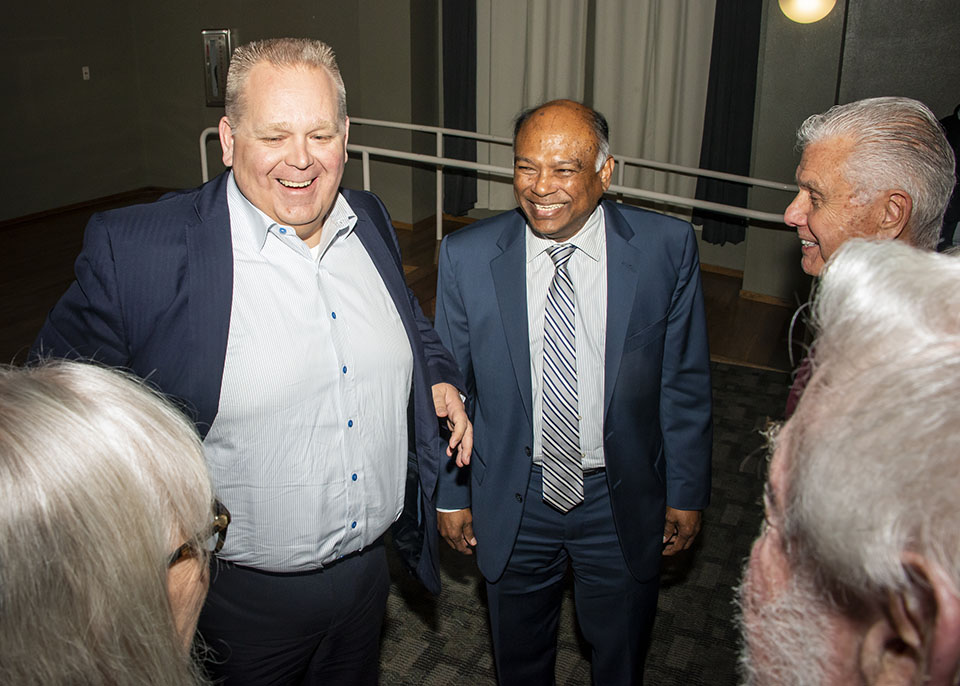
 experience
experience